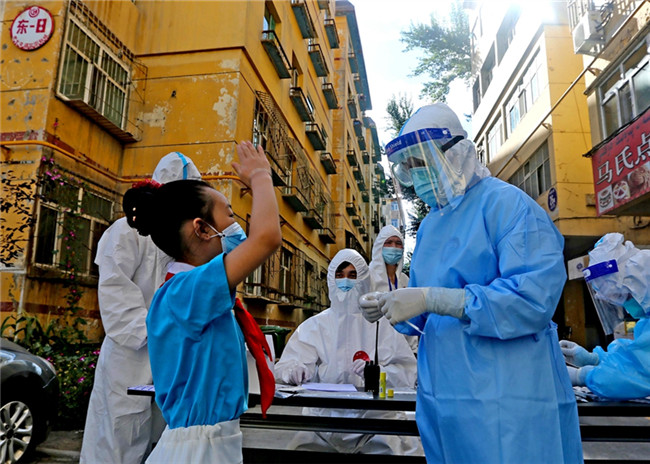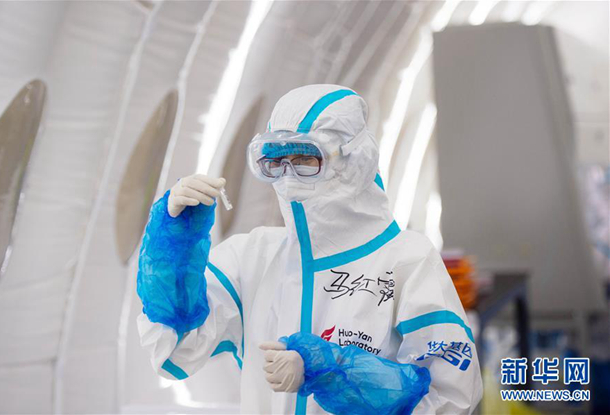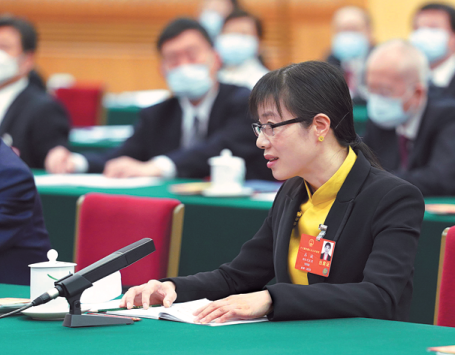
Sanitation Workers and Cleaners Stand Fast in Fight Against Epidemic
NANNING, February 20 (Xinhua) — Putting on protective clothing, a medical mask and a pair of goggles, Shi Qing'e, 48, must put in some extra effort every day before starting her tight cleaning schedule at a designated hospital that receives patients infected with the novel coronavirus in south China's Guangxi Zhuang Autonomous Region.
She always ends the day drenched in sweat as the heavy suit restricts her movements. Since the outbreak of the epidemic, the workload has been intense, said Shi who has worked as a cleaner at the hospital's department of infectious diseases for over six years.
Shi said medical waste used to be placed at the door of the clinic by nurses for her convenience, but as the number of patients increased, medical workers became too busy to make time for the waste, so it became her responsibility.
Throughout the day, Shi manages to find a more effective way to collect the clinical waste, and once off duty, she returns to a recently rented apartment by herself as a precautious measure for the safety of her family.
Along with Shi, thousands of cleaners, garbage deposal workers and sanitation workers across cities are working diligently to maintain a clean work and living environment.
Household waste has greatly reduced as most people are advised to stay at home to minimize the risk of getting infected, but sanitation workers still have heavy schedules because their duties also include disinfecting discarded masks of residents and public facilities such as public toilets.
At 5 a.m., waste disposal stations in the city of Beihai, Guangxi, begin their work while street cleaners like Huang Hua, begin spraying streets with disinfectant.
Huang's cleaning team oversees 180 drop-off locations for discarded masks and over 30 public toilets. Workers all wear protective suits, masks, gloves and rain boots to protect themselves.
Huang said they are also required to report their temperature or any physical discomfort to the company.
Sanitation workers are exposed to the possible risks of infection amid the epidemic, their safety and health must be guaranteed, said Li Qingde with the city's environmental sanitation office.
Li said waste disposal facilities are disinfected up to four times a day in the city, totaling over 5,000 square meters including landfills, 205 public toilets, 1,350 transport vehicles and 20 waste transfer stations.
In a major waste-to-energy plant in Nanning, the capital of Guangxi, giant mechanical hands are handled by skilled workers to put the waste into an incinerator. "The unloading of waste and time to throw the waste into the incinerator must be completed within three minutes after arrival if the garbage is from virus-hit regions," said Luo Gaowen, an experienced worker at the plant.
Luo said he and his colleagues take turns to eat lunch before heading back to work, as noon is the peak time for garbage delivery.
(Source: Xinhua)
 Women Medics in NW China's Xinjiang Contribute to COVID-19 Epidemic Containment
Women Medics in NW China's Xinjiang Contribute to COVID-19 Epidemic Containment Women CPC Members on Front Line of Anti-COVID-19 Battle in Beijing
Women CPC Members on Front Line of Anti-COVID-19 Battle in Beijing Deputy Recalls Role in COVID-19 Fight
Deputy Recalls Role in COVID-19 Fight- Woman Epidemiological Researchers Race Against the Clock on Front Line
 Pic Story of Nurse Who Aided COVID-19 Fight in Wuhan
Pic Story of Nurse Who Aided COVID-19 Fight in Wuhan Volunteer Provides Milk Tea, Back up Anti-Epidemic Workers in NE China
Volunteer Provides Milk Tea, Back up Anti-Epidemic Workers in NE China

 京公网安备 11010102004314号
京公网安备 11010102004314号